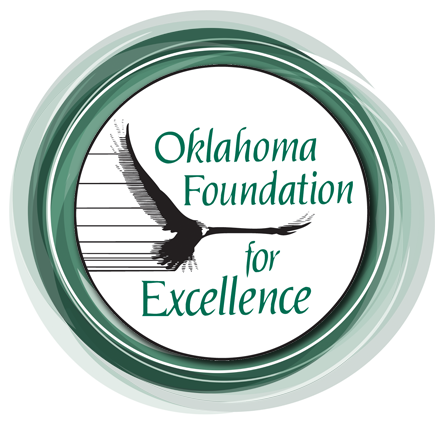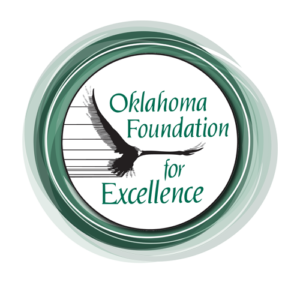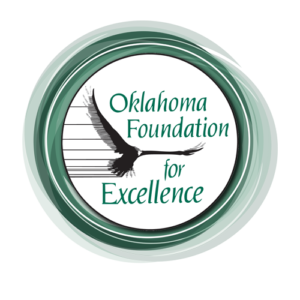Q&A: Jack Booker – Reflections on the Declaration of Independence
Students submitted numerous questions that we were not able to address during the live program “Reflections on the Declaration of Independence.” We are grateful to historical interpreter Jeremy Morris, who portrays Jack Booker, for answering additional questions.
Q: Why was your dad taken? Did you have siblings? What happened to your wife after you were sold? How old was your daughter when she was sold? Did your family ever reunite? How long were you enslaved? Were you ever set free?
A: I grouped a few questions together because they had a similar broad curiosity about Jack’s life. So, having said the above… the study of the lives of the enslaved and free black population is very tricky because there is a considerable lack of concrete information on the personal, intimate lives of the people, especially compared to their white, propertied counterparts, who have records, inventories, letters that survive, and even diaries or journals in some cases. So in order to interpret the lives of these free and enslaved people, there is a lot of guess work that comes along with the very little concrete information available.
Most of the time, there is little more than a baptismal record (the baptism of the individual written in a record kept in the church) that gives a name, an approximate age and/or birthplace, and info about the ‘owner’. The short answer is, I don’t know any of the true answers of those questions because there are no surviving records (that I have found) regarding Jack’s birth, his parentage, or his death. I had to construct a story out of the little I do know about Jack based on what I do know about the institution of slavery, and what I do know has happened to countless other enslaved and free black people.
The fact that there is so little info about the life of Jack – and millions of others who experienced the institution of slavery – means we have to get creative with our facts. However, it’s very sad that this is a consequence of how little importance was placed on these people’s lives beyond what they were forced to do for others.
Q: Carson from Dale Schools asks what you printed at work?
A: A printer would print all sorts of documents, books, advertisements, newspapers, etc. People who owned printing offices and a press would be able to take requests and commissions, but some of them owned their own newsletters and convinced folks to subscribe to their paper. Jack was sold to Alexander Purdie who happened to be the postmaster in Williamsburg, and the owner of one of the Virginia Gazettes. It is never explicitly stated in our records that Jack printed the gazette, but it is quite likely.
Q: Keelee from Nichols Upper Elementary in Miami asks: Was Jack Booker always enslaved at the Print Shop, or did he work for many different people or for one person for a long time?
A: Previous to working for A. Purdie, Jack was enslaved to a merchant named Joseph Scrivener, who is mentioned in Jack’s runaway ad. This ad also says Jack was a good carter, someone who travels by a horse drawn cart to acquire and deliver goods from the storehouse of a business owner, typically merchants. Jack is still on Purdie’s inventory upon Purdie’s death in 1779, and that is the last we can say we know about Jack’s life. Aside from J. Scrivener, we know of no other “owners” of Jack.
Q: Luca from Jenks East Intermediate in Tulsa asks: What was your living situation at the print shop?
A: Many enslaved people ‘lived’ where they worked if they didn’t have separate quarters built on the land of their “owners,” which was much more common on plantations. A cook might have a cot in the kitchen, a maidservant might have one in the hall outside of the mistress’ bedroom, a hostler in the stables, etc. Print shops were usually pretty small but dry rooms, the majority of the room accommodating the size of press, (if there was only one) which were large mechanisms operated by a rotating crank. He would likely have been in that room to sleep.
Q: Keelee from Nichols Upper Elementary asks: How did using the Bible help you learn everything?
A: The Bible has been used to teach people different lessons for quite a long time. Reading and writing are some of the first things that people were taught, similar to today. Having someone read to you helps with the memorization of words. Pretty soon you can match words you’ve learned in key phrases from the Bible, such as the 10 commandments or the golden rule, when you see the same or similar words in other places. You find that you can say the words, no matter what order they fall in. In the case of enslaved and free blacks, many key phrases were used as a means to deceive them into believing that the condition of slavery was pre-ordained for them, and freedom was pre-ordained for whites. These were also taught at the Bray school (schools where many enslaved children learned basic lessons to later better serve their masters) in the form of catechisms, questions and answers taught as a summarization of Christian principles. Carefully selected verses regarding a servants’ duties to their masters were commonly used. Conversely, many of those very same verses in their entirety, and others could be used to teach the Bible as a book of liberation, and that God was not a lover of slavery, but loved all that he created equally. These concepts are very complex and should be analyzed critically and diligently.
Q: DJ from Shawnee asks: Can you still write without being able to read?
A: It’s a tricky idea to wrap your mind around, but yes! Once we get used to both, it becomes difficult to imagine being able to do only one or the other, but they are two separate skills and are learned as such. When I was in school, I remember practicing writing letters over and over again. Then, I moved on to words, the sounds different letter combinations made, and then on to sentences, paragraphs, etc. I even learned a different, more formal style of writing the alphabet called cursive, which changed the way some of the letters looked a lot! Now, that would have been possible even if I had no idea what those words meant. The same way I can copy a Chinese character by looking at it, even if I don’t speak Chinese. It would take practice, but I could memorize the symbol, and write it without knowing its meaning. For another example, I took French classes a long time ago and I still know just a little of what I learned. I can even make out certain words and phrases today. But, if a French person asked me to write down a few of my thoughts in French, it wouldn’t make a lot of sense to them. I do not still have a tight grasp on the grammar, syntax, etc. of the French language.
There is a fascinating document that we have found which we believe to be an example of this. I will include it with the resource list. It was a collaborative essay written by enslaved individuals conveying their hope that the religious piety or dedication of the colonists would extend to the enslaved population the form of mercy. The words used here are very clearly showing an understanding of the circumstances, even if the spelling and grammar suggests a lack of skill in the practice.
Q: Canaan from Cleveland asks: Why was it illegal for slaves to be able to read and write?
A: As I mentioned earlier, one can draw inspiration and information from lots of places, including and especially the Bible. This can happen much more easily if one can read those sources of inspiration or information themselves. This was a cause of fear among slaveholders – the concept of ‘putting dangerous ideas in the minds’ of the enslaved. These dangerous ideas included the teachings of the Bible, especially the book of exodus, (which tells the story of Moses and the liberation of the Israelites) and, eventually, the Declaration of Independence. To further drive this point home, even though there were known enslaved preachers in the 18th century, some of whom went on to establish churches, they were largely forbidden from preaching out of certain books, especially…you guessed it… Exodus. This inspiration and information, and its spread through literacy, was believed by slaveholders to always result in resistance from the enslaved including, but not limited to, uprisings. The final straw in Virginia for example, was in 1831 when Nat Turner, an enslaved preacher, staged what is considered the most infamous slave uprising in history. He was known to have been literate. To try to stop this being possible altogether, many slave states began passing strict laws prohibiting literacy in the enslaved population.
Q: Bella from Northwood Elementary in Seminole asks: Would you have to hide in order to read?
A: Anytime after those very strict laws (and depending on what kind of master you were dealing with, probably even before that) were passed, yes. In the case of Jack, at that point in the 18th century, he would not have had to hide, as it was known that he could read, and before it was considered dangerous for enslaved people to be literate, it was considered valuable.
Q: Layla from Norman asks: Did you ever get freed, or did you escape with the Underground Railroad?
A: As we know, enslaved people ran away ALL THE TIME. As long as slavery had been the law of the land, people resisted and attempted escape. However, the appearance (or awareness of the presence) of the sophisticated escape and relocation network for enslaved people known as the underground railroad doesn’t occur until well into the 19th century. There are lots of different ideas about when the term was coined, or where, by whom, etc.
To me, what happens to be a lot more interesting about this question is, how can we ever truly know? The point of the ‘railroad’ was to secretly transport these people to freedom, so the whole point was that it wasn’t known about by anyone except those who wished to help. And the only reason anyone did find out is because someone was caught, or gave information to those committed to protecting slavery. So, who can say how long it was successfully kept secret before that happened?
Q: Robert from Dale wants to know how you slept or if you did sleep while you ran away. Lily from Dale asks what you survived on while you ran away. Korbin from Lawton asks: How were you found by your master?
A: There are lots of different ways these things can happen for someone on the run. One of the more likely possibilities is that Jack may have found other enslaved or free black people along his way who were sympathetic to his situation, and helped him hide and rest. They may have even given him food. We do know throughout the institution of slavery, many people, especially free black people, were accused from time to time of harboring people who had run. There may have been truth to this, but again, the point was to keep it secret if they had, so our not knowing is appropriate. Otherwise, anyone attempting to escape slavery is going to have some uncomfortable circumstances. Jack may have had to sleep in the woods, or sneak into a barn somewhere. He may have gone a long period of time without food or clean water. This could have weakened him and slowed him down, leading to his capture. Or, perhaps he asked the wrong person for information or assistance. It was very much incentivized for enslaved people to tell on other people who ran. In some cases, someone could obtain their freedom for revealing a runaway or a plot to rebel. It was considered a ‘meritorious service’ performed on the part of the enslaved, and there were rewards for such acts.
The most likely way for a runaway to be caught, is by the slave patrol. Usually members of the underclass, poor whites, free blacks, and some Native Americans, were paid to keep an eye out for enslaved people who had run. This was even bad news for people who were not running, as it was not altogether uncommon for enslaved and free blacks to be captured and detained on the suspicion of being runaways just so a patroller or ‘catcher’ could reap a reward. It is important to note that this is one of the very first examples of organized ‘law enforcement’ in this country, an organization that would one day evolve into the police.
Q: Vincent from Norman asks: When did you have time to plan an escape?
A: Ever been in class, thinking or planning what you were going to do afterwards – to the point that you found it a little difficult to focus on what you were doing? I would imagine it’s a lot like that for any enslaved individual planning to take such a risk. It probably occurs to them as they are going about their duties, especially if those duties tend to take them far distances. Over the course of a day, a week, a few weeks, a few months, a year or more… it depends on the person, and the plan.
Q: Why people were being bought and sold?
A: In the same way we think of our clothes, shoes, vehicles, entertainment systems, phones, etc. This was how people saw people of African descent and as the laws that they wrote defined them. They were considered property, and therefore could be purchased, sold, or traded.
Q: Why were Africans enslaved, but not Europeans?
A: In America, the laws reflected the view that people of European descent (codified as ‘Christians’) should not enslave other ‘Christians’. This meant that anyone not falling under that category, (codified as Negro, Indian, and Mulatto) could be enslaved. The reasoning behind this, is that the Europeans believed Christianity did not exist in Africa before European presence, (it did) and therefore was considered a heathen land. It’s important to note additionally, that changes had to be made after enslaved black people started getting baptized and therefore were considered Christians, meaning they could not be enslaved. The new law stated that Christian baptism did not change the condition of an enslaved individual, hence, ‘Christian’ in the law could not mean someone who was black.
Q: Did Africans own other Africans? Did free black people own slaves?
A: The answer(s) to this first question are quite complex indeed. I am researching this concept of African conditions of servitude as we speak. The simple, fast answer is yes, but it would be a mistake to consider it the same thing as American slavery, or many other conditions of servitude throughout history and across the world. For instance, many people in pre-colonial Africa who found themselves enslaved to someone else usually were aware it was a possibility, since it was a known consequence of being on the losing end of a tribal war. But that conflict is something that is entered into with a mutual understanding of what’s happening with everyone knowing what they stand to gain or lose.
If one found themselves serving the Chief of the victorious tribe, they would become part of that tribe, they would marry and hopefully have children in order to increase the descendants of that Chief, which was a primary measure of wealth and importance among many African people. A large family. Eventually, that same person, still considered human while considered a servant or slave to this Chief, could say they needed to take leave and establish their own land once their family had grown to a certain size. This ‘slave’ would be considered more wealthy and more important than an unmarried free man with no children. Obviously, this is one example that could be pulled from literal millions, with the vastness of diversity of African nations and tribes. It’s definitely something to dig deep into.
As to the second question, the answer is also yes. But it’s important to note why the answer is yes. For one, the overwhelming majority of the time, according to records we have, a free black persons’ most immediate means of securing a family member or loved one who was enslaved, was to buy them. We see one known instance of this in the Ashby family of Williamsburg. He is one of the very few we know about who was successful in purchasing his wife and children, and then securing their freedom by petitioning on their behalf on the grounds of meritorious service, ( the same law that could reward enslaved people for giving information about runaways and uprising plots.) Citing that Ann was a dutiful wife, and his children were obedient and well behaved would likely not have worked if he wasn’t as well known around Williamsburg. Also, quite important to note, while it was legal for free black people to own other black people, it was illegal for white people to even be enslaved as we previously discussed, and illegal for free black people to have white indentured servants. There was a definite design in what was acceptable regarding slavery/servitude, and what wasn’t, and it was keeping people of African descent in a lower ‘place’, no matter what.
Q: Alex from Enid asks: Around the world, is there still slavery?
A: Unfortunately, yes. Slavery still exists in many forms, even if it isn’t identical to what we have discussed here. Note the wording of the 13th amendment…”Neither slavery nor involuntary servitude, except as a punishment for crime whereof the party shall have been duly convicted, shall exist within the United States, or any place subject to their jurisdiction.” This does not eradicate the entire concept of slavery, it only made it ‘justifiable’ within a given context. And one of the most common ways racism is exposed, is through the operation of the criminal justice system, then and now. There is also human trafficking of many kinds around the world. This is also something that requires deep and diligent study, as it is a problem that continues this very day.
Q: Daniel from Bartlesville asks: What prevented slaves from running away when they went to market? Were they constantly supervised?
A: Yes. We previously discussed the slave patrol, but everyone was expected to help maintain the institution of slavery. Think the phrase ” if you see something, say something” today. It was considered a matter of public safety, and national security to keep black people ‘in their place’. This concept even continues past slavery. I don’t need to remind you that despite all of this, MANY enslaved people still ran away, and resisted.
Other than that, we already know how easily and how quickly an enslaved person could be separated from their family members or loved ones, so it is reasonable to assume that those who had their families or loved ones near or even in the same household might feel fortunate in an otherwise terrible circumstance and believe that any hint of resistance on their part could jeopardize that. There could be many reasons aside from this, as each case was different.
Q: Tyler from Shawnee asks: When the Declaration was signed, did slavery stop or did you all at least get a little more rights?
A: Slavery continues today, but legal race-based slavery in America, was abolished in 1863 with the Emancipation Proclamation, but some places in the south attempted to continue as though nothing had changed to keep their enslaved people. News would reach Galveston Texas on June 19th, 1865, and would come to signal a true end to the institution in this country. The anniversary of this event is celebrated as a holiday called Juneteenth.
Q: Luca from Jenks East Intermediate in Tulsa asks: What are your thoughts about the unjust treatment of Native Americans?
A: Many of the laws I have referenced, and many others that became known as ‘black codes’ or ‘slave codes’, begin the same way. “Negro, Indian, Mulatto…” Native Americans were often subjected to the exact same abuses and usurpations as Africans/African Americans. There are many differences in the timeline of that story, but there’s much more overlap than divergence. I think the same about them as I do about all people. No one deserves to be oppressed.
Q: Coree from Bartlesville asks: Who else does Mr. Morris portray?
A: Lots of folks: Israel Kemp, a Baptist preacher; Nat Turner, a preacher and revolutionary; Johnny, a waitingman who runs in 1774; Juba, an enslaved man working in a tavern; and Sam, a former soldier in Dunmore’s Army attempting to lead enslaved and free blacks to the Indian country to start a new life.
Q: Mrs. Hodgins 5th grade class in Seminole asks: Who was an important person you look up to from this time period?
A; Definitely, Sam. His runaway ad reads like an action movie. I have written a program about him for the ‘My Story, My Voice’ series. For everything we don’t know about how this man’s story ends, we know he didn’t stop fighting.
Thank you to Jeremy Morris for providing the links below to additional resources for students to learn more about Jack Booker, the printing trade, and the institution of slavery.
There’s much more to learn with the following links! Jeremy says, “Continue your journey through this time and discover all you can about these amazing people. How many more examples can you find of how they lived, despite the great obstacles they faced?”
Jack’s runaway ad – http://www2.vcdh.virginia.edu/gos/search/relatedAd.php?adFile=vg1776.xml&adId=v1776032115
General printing office information – https://encyclopediavirginia.org/entries/printing-in-colonial-virginia/
General slave quarters information – https://encyclopediavirginia.org/entries/slave-housing-in-virginia/
A 19th-century pamphlet written against slavery “The Bible Against Slavery” – https://books.google.com/books/about/The_Bible_Against_Slavery.html?id=TVNEAQAAMAAJ&printsec=frontcover&source=kp_read_button&newbks=1&newbks_redir=0&gboemv=1
Pro-slavery literature – https://books.google.com/books/about/A_Brief_Examination_of_Scripture_Testimo.html?id=BUdLAAAAYAAJ
Virginia letter from anonymous enslaved person(s), not composed very skillfully but powerful. – https://encyclopediavirginia.org/entries/letter-from-virginia-slaves-to-bishop-edmund-gibson-august-4-september-8-1723/
Black codes and slavery laws – http://www2.vcdh.virginia.edu/gos/laws1700-1750.html
https://www.swarthmore.edu/SocSci/bdorsey1/41docs/24-sla.html




